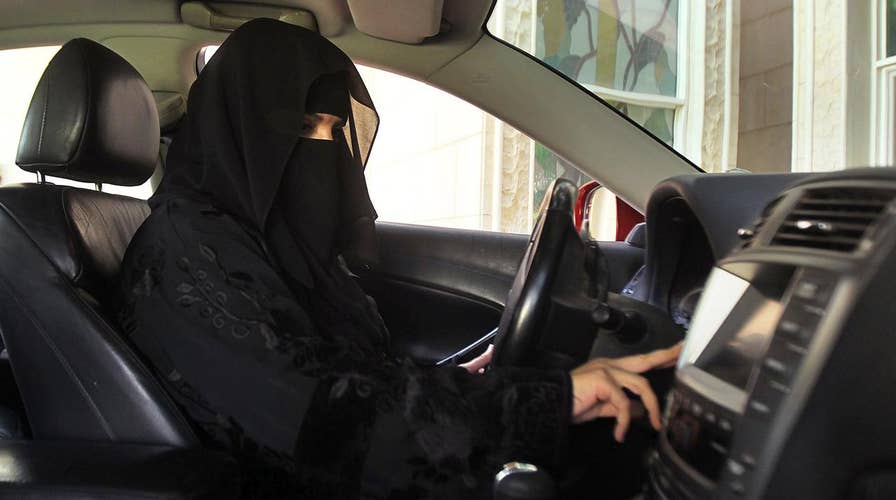Saudi Arabia agrees to let women drive
Women will be allowed to drive vehicles starting in June 2018
Tuesday, in a bold and decisive -- yet politically risky -- move, Saudi King Salman issued instructions that will finally allow women to drive. The announcement represents the culmination of a five-year reform initiative aimed at empowering Saudi women, which has accelerated dramatically under the leadership of Crown Prince Mohammed bin Salman. While the decision will yield concrete social and economic benefits it is also highly controversial and is likely to provoke fierce opposition in what remains a deeply religious and overwhelmingly conservative Saudi society.
In the past five years, Saudi Arabia has passed a series of critical reforms which allowed women to enter the economic and even the political arena. Today, Saudi women have the right to work in industries traditionally dominated by expatriates, such as retail, as well as professions traditionally exclusively occupied by Saudi men, such as diplomacy and other sectors of government service. Women also make up 30 percent of the Shoura Council, the Kingdom’s advisory parliamentary body, and enjoy the right to vote and run in municipal elections, the Kingdom’s only popularly-elected government office.
In the past year alone, Samba Financial Group became the first Saudi bank to have a woman CEO, Dammam Airport became the first airport to have a female executive director, and the Saudi stock exchange received its first ever female chair. On the social front, the government curtailed the powers of the infamous religious police, including their power to arrest. This force had been a major irritant for and, on occasion, a hindrance to the free public movement of women.
Only the upper and upper middle classes can afford a personal chauffeur; the majority of middle and lower-class women must rely on taxis (if they can afford them) or male relatives to transport them to and from work.
Achieving women’s economic and social empowerment is critical to fulfilling the objectives outlined by Vision 2030, Saudi Arabia’s blueprint for transitioning to a post-oil economy through a comprehensive program of economic diversification and social liberalization. The plan describes women as “a great asset” for “the development of our society and the economy” and calls for raising the female workforce participation rate from 22 percent to 30 percent.
This is not sloganeering. Saudi women have closed the education gap with their male counterparts; in the past five years between 45 percent and 55 percent of the Kingdom’s university population has been female at any given time. In a country where nearly 70 percent of the population is under the age of 35, allowing women to drive will help these vast numbers of female university graduates to enter the labor force more easily.
The move will yield additional dividends. Only the upper and upper middle classes can afford a personal chauffeur; the majority of middle and lower-class women must rely on taxis (if they can afford them) or male relatives to transport them to and from work, as even the largest cities still lack adequate and affordable public transportation. Removing the prohibitions on driving raises the likelihood that middle and lower-class Saudi women will be able to enter the labor force and increases the amount of disposable income families will have. As the number of expatriate drivers declines, new jobs will also be created for Saudi nationals in the transportation sector.
Despite these benefits, as the recent backlash against the government’s decision allowing women to participate in National Day celebrations demonstrates, the Kingdom’s conservative majority will push back against social and economic liberalization. Negotiating and overcoming that pushback will require a firm hand. With the benefit of hindsight, we can now see that last week’s clampdown on some of Saudi Arabia’s leading non-establishment clerics was aimed, at least in part, to preempt opposition to this monumental shift. More resistance will come. Even though a majority of the Council of Senior Scholars, the Kingdom’s most senior religious body, have publicly declared that Islam does not prohibit women from driving, for many conservatives the driving issue represents the thin end of an irreversible wedge that enters under the guise of modernization and ends in total Westernization.
If a significant enough portion of the population equates socioeconomic reform with sociocultural obliteration, any bottom-up move toward liberalization is doomed to failure. And even though this attitude is changing, particularly among the Kingdom’s youth, we cannot wait a generation to implement the type of change that is necessary. Even with the recent rebound in oil prices, the days of the $100 barrel are gone and the world’s diversification away from fossil fuels is irreversible.
The Kingdom must change and that change must be implemented from the top-down. This Herculean task requires strong leadership capable of harnessing the full capabilities and resources of the state and mobilizing the support of the Kingdom’s youth and key external allies to help implement our forward-thinking vision. The recent consolidation of authority under the Crown Prince has provided the requisite leadership to enact these vital, but politically risky, social and economic reforms, which are needed to bring Saudi Arabia into the twenty-first century.

